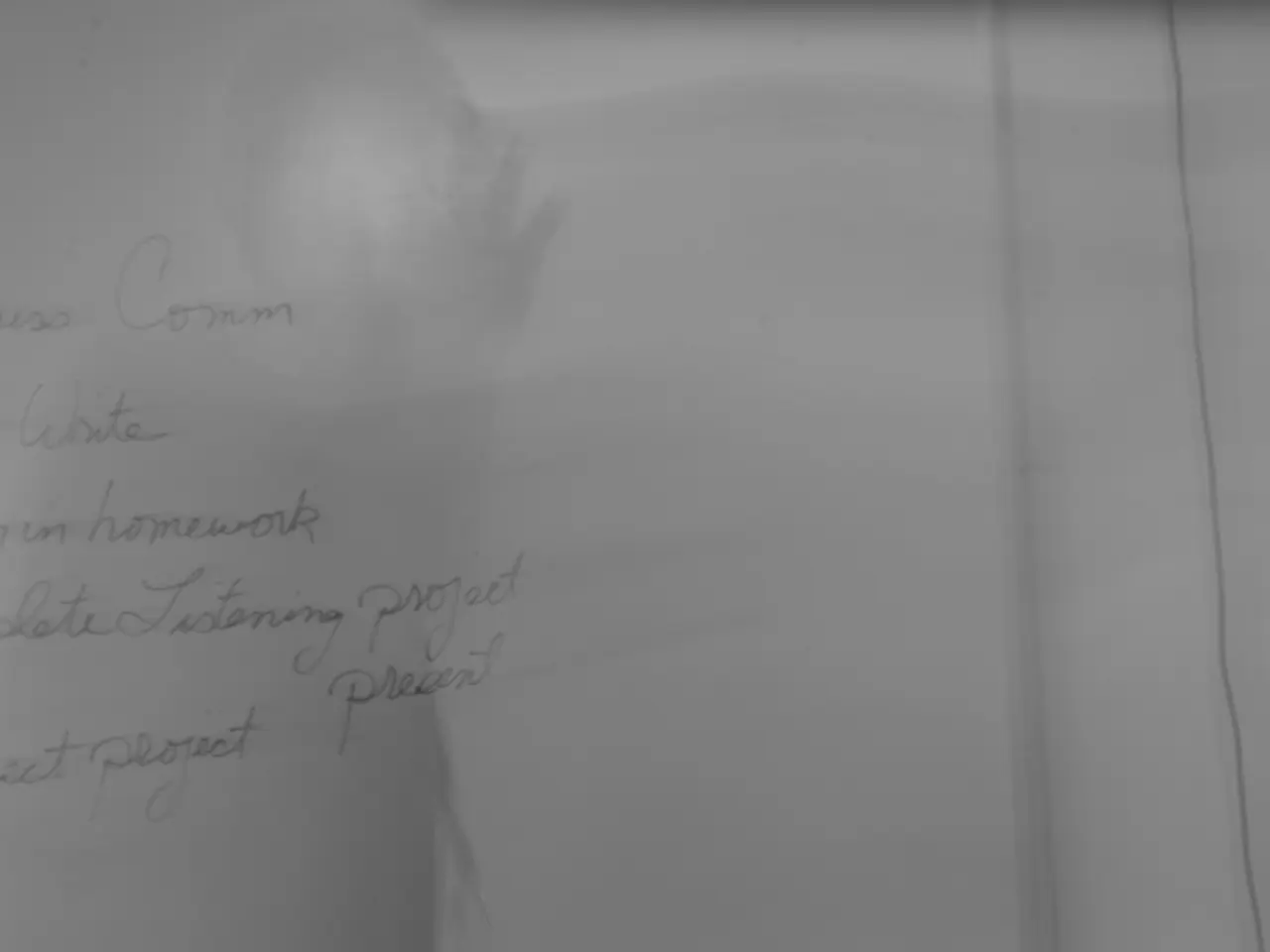"No More Messing Around" - SPD to Prepare Imminent Ban Proposal Against the AfD
SPD to Swiftly Propose a Ban on AfD
By Hubertus Volmer, Berlin
Quick access Facebook Twitter WhatsApp Email Print link
In a unanimous vote at the SPD party congress, delegates resolutely demanded the initiation of a ban procedure against the AfD. A spokesperson emphasized that fascism cannot be pacified but must be confronted. The Saxon chair of the SPD expresses unease over the debate's mood.
Following a two-hour debate, the outcome is clear: the SPD party congress in Berlin, decisively, unanimously resolves via card vote to necessitate an examination of the possibility of a ban procedure against the AfD. When the result is announced, the delegates stand, applauding.
"The moment is nigh for the competent constitutional bodies to establish conditions to promptly submit an application for the assessment of the unconstitutionality of the AfD," the resolution declares. First, create conditions, then "immediately" submit an application. This application is submitted to the Federal Constitutional Court for review. The Bundestag, Bundesrat, and federal government all hold the right to submit an application.
For now, the SPD desires to "motivate the competent constitutional bodies to initiate a Bund-Länder working group with a compilation of materials for a determination procedure before the Federal Constitutional Court." Furthermore, experts should be enlisted "to review the materials to establish if they possess the evidence to prove the unconstitutionality of the AfD."
For the time being, the SPD intends to first discuss the project with its coalition partner. The CDU and CSU are, at present, against a ban application. The party congress resolution does not detail any contingency plans should there be no majority in the Bundestag and federal government for a ban application. It is presumed that SPD-governed federal states will then instigate a similar initiative in the Bundesrat.
Thuringian SPD state chairman and interior minister Georg Maier, in an email after the decision, underscored the responsibility delegated to the party, citing the survivors of National Socialism, who charged them to remain vigilant and take decisive action. In the debate, Maier expressed confidence that "the risk of doing nothing is significantly greater than the risk of failing in the ban procedure." The former SPD chairwoman Saskia Esken, who drafted the application, bore primary responsibility for its conception.
SPD leader Lars Klingbeil declared, "It is a historic task to remove these individuals from parliament once more." A ban procedure is not the sole avenue for combating right-wing extremism, but "the judicial dispute with the AfD is a critical aspect of it."
Maier asserted that one does not require the constitutional protection to prove that the AfD violates human dignity - a prerequisite for a party ban. "This party is a nationalist party," said Maier. Their perceptions of "pass-Germans" could lead to expulsions. "Pass-Germans" is a term coined by right-wing extremists to belittle Germans with a migration background.
"The dam has already burst"
The motion to ban the AfD is "not a political whim, but a manifestation of constitutional responsibility." However, a ban in isolation is insufficient. "We must strive to win these people back," Maier expressed regarding the AfD’s supporters.
In the SPD resolution, AfD politician Enrico Komming is quoted as saying, "this democracy (...), that's not what we want. We want to abolish it." Numerous speakers in the debate cited additional examples.
For instance, Bavarian state parliamentarian Anna Rasehorn cited, "The dam has already burst." She describes encounters in the corridors of the Bavarian state parliament, where she has been whispered threats, as well as speeches in the state parliament evoking "final victory" and giving "these rabbits in parliament the well-deserved smack in the face."
"'Thank you, Lars,' Suddenly the Entire SPD Loves Saskia Esken"
Critical voices in the debate were seldom heard. The Saxon chair of the SPD, Henning Homann, supported the motion to ban but voiced concern about "the euphoria" in the debate. "This is not about anti-fascist folklore. This is about a very serious matter." Even if an AfD ban succeeds, the danger will persist: "The seed will remain fertile."
It is important to remember that a party ban in Germany is a complex, rigorous process underpinned by constitutionally mandated requirements. This legislation is designed to protect the political system while preserving democratic values. The ultimate decision lie with the Federal Constitutional Court, and the state carries the burden of proof to demonstrate that the party poses an active threat to democracy.
Footnotes
[1] - German Federal Constitutional Court Decisions[2] - Bundesverfassungsgericht, Az.: 1 BvR 2566/17, Judgment of May 8, 2019[3] - Bundesverfassungsgericht, Az.: 2 BvR 2095/83, Judgment of February 21, 1985
In light of the resolution, the SPD plans to discuss the prospect of a ban application with their coalition partner, CDU and CSU, who currently oppose it. The SPD also intends to assemble a Bund-Länder working group and engage experts to evaluate the evidence of the AfD's unconstitutionality.
To effectively combat right-wing extremism, the SPD acknowledges that a ban is crucial but not sufficient, and efforts must be made to win back AfD supporters. The party leaders declared that the ban procedure is a critical aspect of the broader judicial dispute with the AfD.








